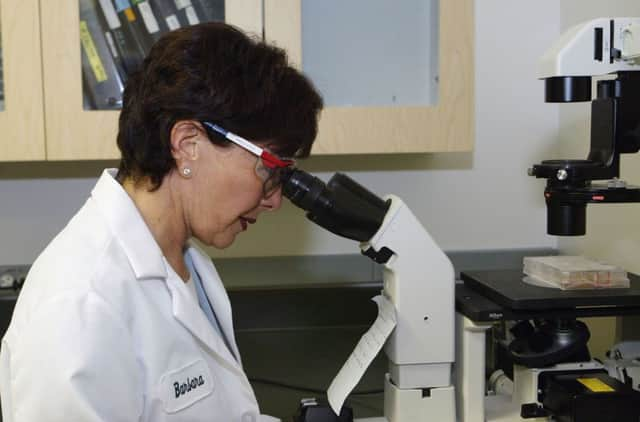Behaviour study could help autism treatment


People make decisions based on predicting what someone else will do. This includes deciding whether the driver approaching a junction will stop for a red light and determining whether a particular negotiation strategy will result in a desired outcome.
Now a study has discovered two groups of neurons that play key roles in social interactions between primates – one that is activated when deciding whether to co-operate with another individual and another group involved in predicting what the other will do.
Advertisement
Hide AdAdvertisement
Hide AdStudy lead author Doctor Keren Haroush, of Massachusetts General Hospital (MGH) department of neurosurgery in the United States, said: “For a long time we have been interested in understanding how complex social interactions between individuals are mediated by neurons within the brain.
“We found that part of the frontal lobe called the anterior cingulate cortex plays an essential role in mediating co-operative social interactions in rhesus monkeys.
“Some neurons encode the animal’s decision whether or not to co-operate with another monkey, and a separate group was activated in predicting what the other monkey would do before it had made its selection. The activity of those other-predictive neurons was uniquely affected by the social context of the interaction.”
The anterior cingulate cortex (ACC) is broadly connected with other brain regions known to be involved in interactive behaviour, and damage to the ACC results in reduced interest in other individuals compared with inanimate objects. People with autism spectrum disorders or other conditions affecting social interactions, such as antisocial personality disorder, have been found to have abnormalities in the ACC.
To understand better the role of the ACC in making decisions and predicting what another person will do, Dr Haroush and senior author Doctor Ziv Williams, also of MGH Neurosurgery, tested pairs of monkeys in a version of the “prisoner’s dilemma” strategy game.
The predictions made by the activity of the neurons were as accurate as those made by an algorithm that evaluated the animals’ previous choices.
Dr Williams said: “Social interactions are complex, and here we touched on only a small aspect of how individuals interact. Our eventual hope is to better understand how these complex, multifaceted interactions are encoded within the human brain and use this understanding to develop new, targeted treatment for disorders such as autism and antisocial behaviour, which are often characterised by difficulty with social interaction.”
The findings will appear in Cell magazine and have been published online.
FOLLOW US
SCOTSMAN TABLET AND MOBILE APPS